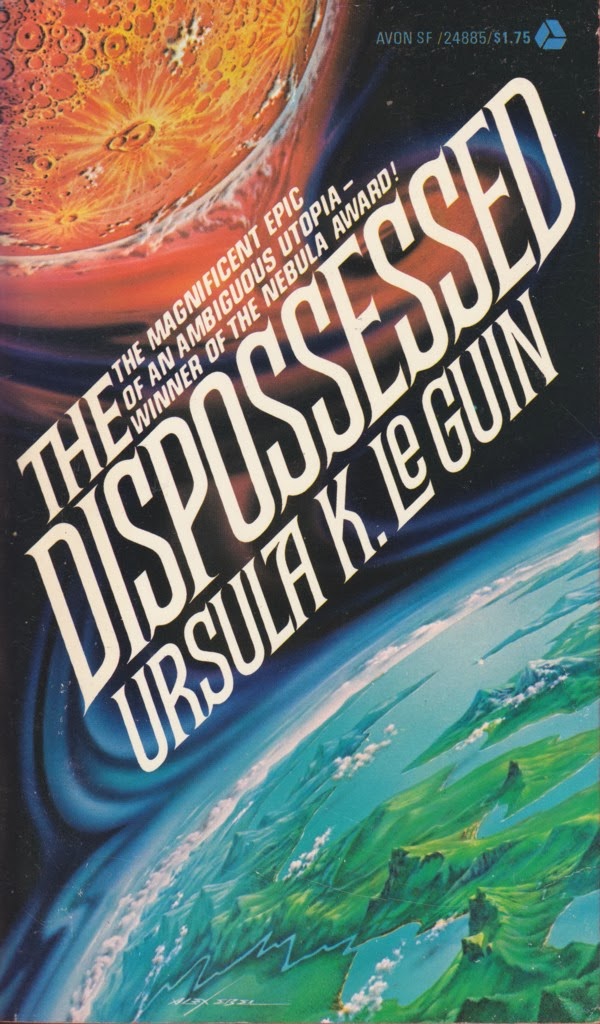I may have blogged about science fiction before, but that was before I used labels. If it is not labelled and therefore not searchable, it lives in a rarely visited hovel with car phones and beanie babies (though these are making a comeback). And this is not another discussion of how interest in science fiction, comics and musicals waxes during years of social turmoil, because, like, duh. When bankers are jumping from buildings and Kanye still thinks he's god, who doesn't want to imagine they are a suave superhero in a cape rescuing screaming (always screaming) women. Or something.
No, no, the Point of this blog post is that I like dystopian and post-apocalyptic fiction, as well as a difficult one to define: fiction about the city - not just set in it or a travel guide or a map, but wherein the amorphous spirit of the city is a character - and this is mostly labelled science fiction so that it doesn't have to live in the same hovel that Kanye (who?) will one day inhabit.
The genres of science fiction and fantasy do not have fans, they have cults. Compare the fans of Legally Blonde with those of Star Trek. Unless things have changed in the last 6,5 minutes since I checked my RSS feed, blondes whose peroxide has burnt its brand logo in their brains and who trip over crucial evidence in a trial and claim to represent women's lib, do not host massive conventions that even the producers of Legally Blonde and Twilight now attend.
I am not a cult fan. Of anything much, including life. (Nor am I blonde, nor do I scream (I tried once and all I got was a scraping caw) and the fool who tries to rescue me will get a weapon from my weapons belt lodged in his eye socket.) Except books. I will go to the grave insisting that The People's Act of Love (yes, that book, and shut it) is the best book written in the last two centuries and I would proudly host a convention in the topic, although I wouldn't dress up as one of the characters because they sound smelly.
Woman on the Edge of Time was a surprisingly powerful novel - surprisingly because I had never heard of it before a friend recommended it. (I could go on a rant about how literary literature written by women (nevermind anything that has a socialist flavour) and science fiction are herded into their own hovels. But I won't.) It is about a woman whose one alter ego is in a psychiatric hospital (the kind where they throw away the key) and the other finds herself in an utopia of the future.
This sounds like a Bruce Willis movie, which isn't a bad thing because 12 Monkeys is still sitting with me and I enjoyed Looper. Now here is a more appropriate place for aforementioned rant. The novel has distinct feminist and socialist flavours. It was written in the 70s, when the world (read America) was more idealistic in that it believed that the ideal could be won if you fought for it. (Now their children are doing the same; search Anonymous + hackers and OccupyChicago/SanFrancisco etc.)
How does that make you feel? Are you less or more likely to read the novel than when I initially recommended? Why? I'll admit that if I had known, I would have hesitated to pick it up now. It sounds... heavy, I would have said. I being the person with Ulysses, a book that is undecipherable according to those in the know i.e. who have finished it, on my dresser and Murakami's 1Q84 on the bookshelf. I being the person who reveres The Road as cruel, beautiful and illuminating.
This was not what I had intended to blog about. I was going to follow up with The Dispossessed by Ursula Le Guin. But this is another heavy novel, full of feminism and socialism and human rights, and I am too tired to lift it, so I guess you're too tired to read it. If you're still there. You might be reading through the troves of articles about Anonymous - now there's a real life story designed to extract the idealist in you. (Ask Kanye to sort it out.)
I do like the list of things I like above. I enjoy novels that pick me up out of my comfort zone so that I can view the world around me, without feeling like none of this chaos can be contained or sanitised. These novels outline my own ideals, so that I can scratch up the edges in the real world. So I guess I have tricked myself and returned to the original tired premise. It's tired in part because of the labels we have stuck on it. Science fiction is more than a Spock costume. That is the type of fiction I like.
.jpg)

No comments:
Post a Comment